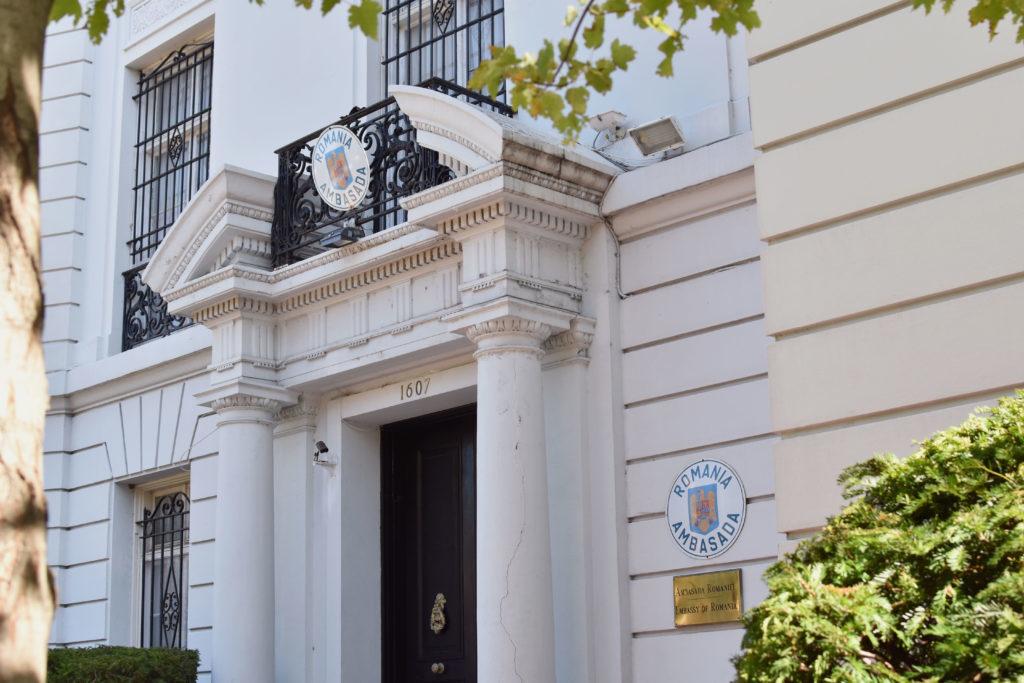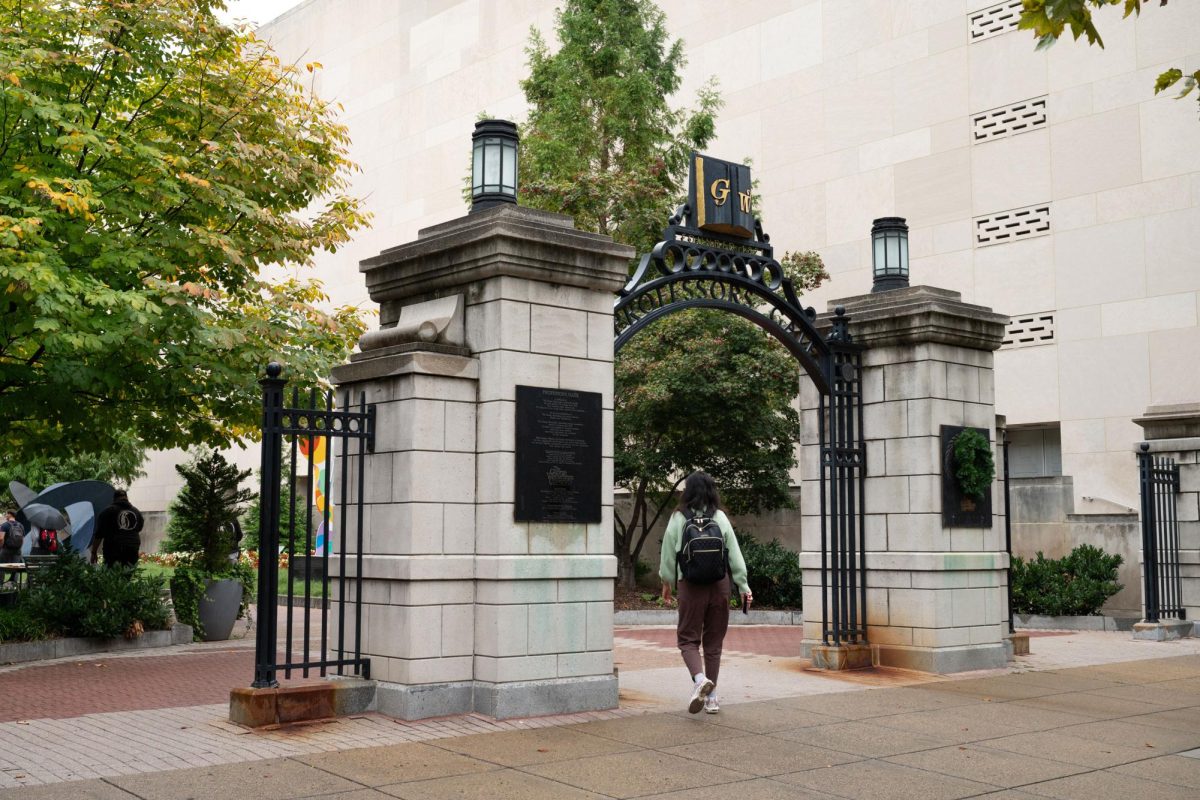The Romanian ambassador to the United States discussed democracy in his country in the three decades after a 1989 revolution in an event at the GW Textile Museum Wednesday.
George-Cristian Maior, who has held the post since 2015, spoke about the political and economic development Romania, an Eastern European country bounded by Ukraine and Bulgaria, has undertaken since its revolution. Maior spoke with Dennis Deletant, a professor of Romanian studies at Georgetown University, at the event, hosted by the Elliott School of International Affairs’ Institute for European, Russian and Eurasian Studies and the sociology department.
Romania’s 1989 revolution ended in more than 1,000 deaths and the overthrow of communist Romanian dictator Nicolae Ceaușescu, who during his two decades in power lowered living standards, curtailed civil liberties and created extreme food and electricity shortages after exporting much of the country’s goods to pay off debt.
“It was a revolution that opposed a very powerful dictatorship – perhaps the most powerful and the most pervasive in terms of devising mechanisms for control over the population,” Maior said.
Maior said he was a student at the time of the revolution and joined others on the street in singing “We want liberty.” He said Ceaușescu’s regime was among Eastern Europe’s most oppressive because he left room to criticize his actions but would respond violently to those who did.
“It was different in terms of controlling dissent, I would dare to say that Ceaușescu had a somewhat clever approach that is hard to understand and very paradoxical, but he really left some room of expression for possible dissenters in terms of their capacity to send messages against him,” he said.
He said that since the revolution, Romanians have prospered, becoming the fastest growing economy inside the European Union.
“It has been a difficult transition because, again, the system was very centralized and the command of Ceaușescu over the economy, the social life, the culture was so strong, but the creativity and the energy of the Romanian people managed to push this country forward very rapidly,” he said.
Deletant, the Georgetown professor, said the revolution left Romania at a “very low starting point” from which to build a democracy, which is why the nation still faces issues translating its democracy from paper to practice. He pointed to a recent European Commission report that found Romania has regressed in combating corruption as one shortcoming of the country’s political system.
“We had this period of uncertainty, a struggle to consolidate democracy in Romania,” he said. “And it’s a struggle we may argue in some respects which is still going on today, this need for the respect for the rule of law.”
Deletant said Romania must reduce corruption to meet the EU’s standards, adding that the recent report’s findings on corruption are based on a number of economic crimes that Romanian authorities have not been able to investigate or prosecute. He said Romania needs a political class that puts the country’s interests above personal interests.
“The solution lies in Romania’s own hands to do what the European community expects of Romania when it joined,” Deletant said.





